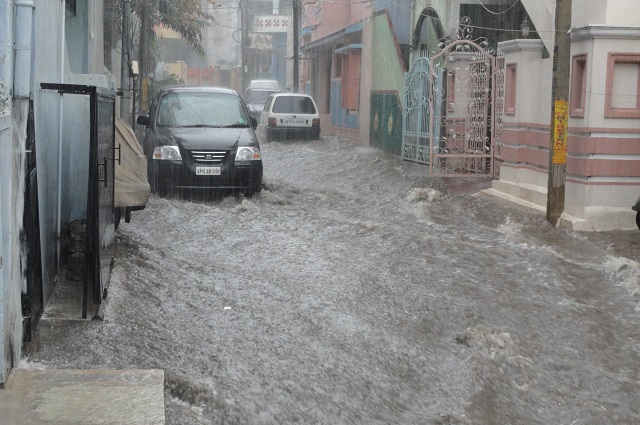News Story
(Below is a backup copy of the original article with as much credit to the publisher as well as the author that we can provide. By no means do we mean to violate any copyright laws. This page is appearing because someone indicated that the original story was unavailable.)
The US diesel crunch means it's time to stock up on food, Robert Kiyosaki says. Here's what the 'Rich Dad Poor Dad' author and 5 experts are warning as fuel runs short.
There's an acute diesel shortage in the US, and it's sparking worries about inflation and food supply.
Higher fuel prices mean higher delivery costs, which could feed into higher prices for consumers.
Here's what Robert Kiyosaki and 5 other top experts think the diesel crunch means for Americans.
A shortage of diesel in the US has set alarm bells ringing for many experts, who are flagging higher prices for goods and risks to food supply as truckers pay more for fuel.
Inventories of diesel have sunk far below emergency levels, and EIA data showed US had only 25 days' supply of diesel left in reserves as of three weeks ago — a low not seen since 2008.
The reason? Refiners slowed their refining as the pandemic hit consumer demand, but truck operators kept on buying at high levels as they continued to make deliveries.
Diesel is used in freight transportation, and tight supply could mean less food and other goods getting onto supermarket shelves, and higher delivery costs feeding into higher prices for consumers. That could worsen already high inflation.
Shipping isn't the only thing threatened by a diesel shortfall. Heavy users like the construction and farming industries are at risk, too.
But not all observers believe Americans are definitely headed for a diesel crunch — some are saying it's just business as usual.
Here's what 6 experts are warning around dwindling diesel supply.
Robert Kiyosaki, "Rich Dad Poor Dad" author
Kiyosaki tweeted about the risks to food supply from a diesel crunch, and returned to touting tuna as a good investment.
"Years ago I suggested investing in cans of tuna. Why? Because tuna is a derivative of diesel," he said.
"TuckerCarlson just reported diesel supplies gone. Went to Safeway bought tuna 5 cans for $1. Stock up. Next lines not at gas stations. Next lines at grocery stores. Diesel feeds world."
Patrick De Haan, head of petroleum analysis at GasBuddy
"Ahead of the holidays, this will be something that keeps the price of goods higher," GasBuddy's De Haan told CBS News, referring to diesel at $5.30 a gallon highs.
"Consumers won't feel it when filling up with gasoline, but as they shop for the holidays, the cost of goods will be higher. It will contribute to some level of inflation," he added, noting that Amazon has turned to flying more planes and has put up the price of Prime membership at the same time.
But the gas expert pushed back at suggestions the 25 days' of diesel inventory mean US diesel supply will dry up.
"What's the number SAYING if not how many DAYS we have? It's saying the market is tight, and challenged, and it demands attention. Again, it DOES NOT signal that we're definitively running out in x days," he tweeted.
Tom Kloza, global head of energy analysis at Opis
"The public are apoplectic when gas rises, but diesel has incredible impacts to inflation in the form of freight costs and surcharges," Kloza told USA Today.
"Between now and the end of November, if we don't build inventories, the wolf will be at the door. And it will look like a big ugly wolf if it's a cold winter," he added.
Mazen Danaf, senior economist at Uber Freight
"While many hoped that easing supply chain constraints would help in taming inflation, it did not have the effect we expected due to high fuel costs," Danaf told Newsweek.
The impace "is definitely felt by the end consumers, because shipping costs have been one of the main drivers of inflation in the past year," he said.
Mike Steenhoek, executive director of the Soy Transportation Coalition
"In visiting with a number of farmers, the consensus, of course, is that diesel costs are one more incursion into profitability," Steenhoek told CNBC.
"As far as getting supplies, it looks like those areas most dependent upon the river are experiencing the biggest challenge. A couple of farmers told me diesel supply via their local vendor is day-to-day," he said.
Ed Hirs, University of Houston professor of energy economics
Hirs suggested there's no reason to panic about the low US diesel supplies, as reserves are topped up on a rolling basis.
"Inventories of diesel and gasoline are down below five-year averages, and if the entire world were to stop, we would have 25 days worth of diesel. But the world doesn't stop. We're not counting on it stopping," Hirs told CBS MoneyWatch.
"Your grocery store may have an inventory of three days of milk. That's because they only have three days' worth at any given point. But the cow keeps milking, the farmer keeps sending milk, the dairy keeps delivering," he said.

